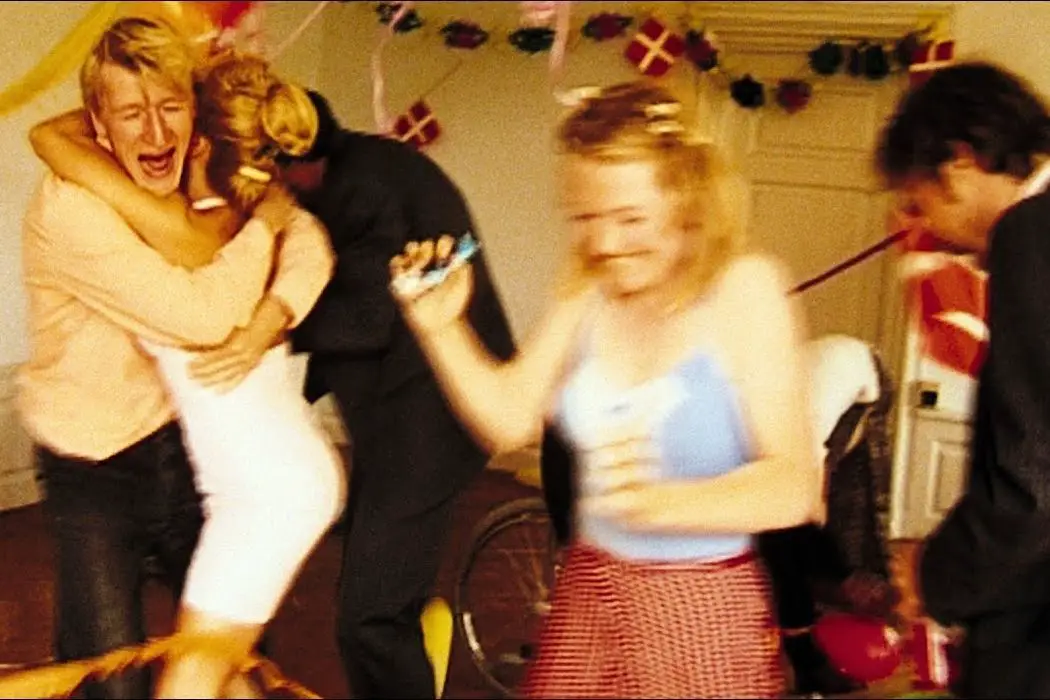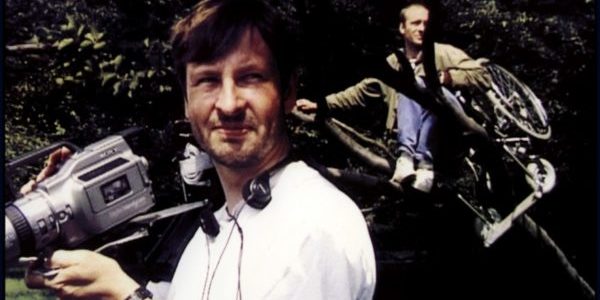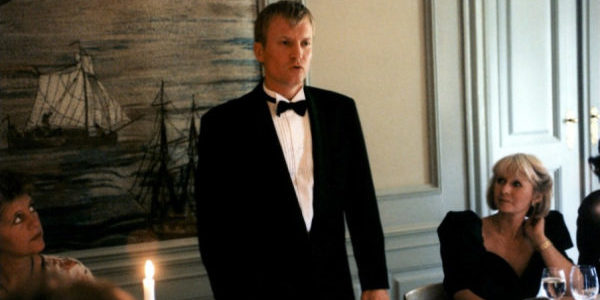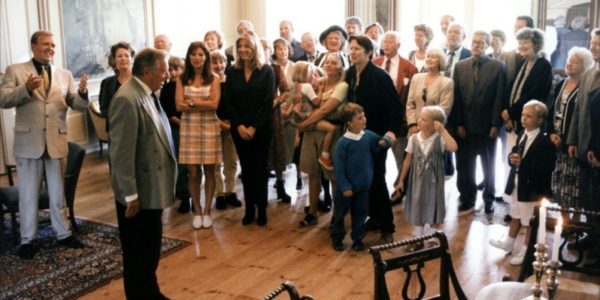Anarchic Cinema: Dogme 95 & The Emotion And Character Of Film

Matthew Roe is a director, writer, producer, film critic, theorist…
Just as there are regulated and unregulated systems of commerce and politics, systems emerge in cinema following the same principles. This may manifest in the forms of artistic movements and individual film theory, and it seems that every five years or so a new wave emerges.
I consider Thomas Vinterberg and Lars von Trier to be notable anarchic cinephiles, though I am certain that neither would claim to be so if called thusly. Their movement of Dogme 95 employed similar principles as Transgressive Cinema and Anti-Film, deconstructing the form of cinema and toying about with its pieces.
The Vow of Chastity
Dogme 95 was announced publicly on March 13, 1995 in Paris by von Trier during a conference celebrating the first century of movies. I can say unequivocally that this is one of the most bizarre and underappreciated experiments that has ever existed in cinema. Its primary emphasis is on acting and theme, while explicitly excluding heavy reliance on technology or special effects, and rejecting many fundamental filmmaking techniques. This was outlined in Dogme’s excruciating Vow of Chastity, where its extreme warped minimalism forced brand new techniques to be invented. The ten rules are listed here.

Dogme 95 was more or less declared dead after the release of Juan Pinzás’ El desenlace in 2005, and it reportedly sports a full catalogue of 254 films. Regardless to how any of us may feel on the movement and the films that it has produced, they have a larger library than Expressionism, Impressionism, Anti-Film and Transgressivism combined, so there’s at least something to it.
But how can an “anarchic” attitude exist in the grip of so much control?
Let’s Celebrate The Idiots
Vinterberg’s The Celebration and von Trier’s The Idiots were released in 1998. Though both filmmakers had been well-established in the Danish film industry before these productions premiered, their experiment rewrote the modern definition of auteur theory, fanning the flame of the bustling international indie film scene, and swung worldwide attention back to Europe when the (then-present) stranglehold of the re-independent boom was being dominated by Americans Spike Lee (Do the Right Thing), Steven Soderbergh (Sex, Lies & Videotape), Richard Linklater (Slacker, Dazed & Confused), Robert Rodriguez (El Mariachi), Quentin Tarantino (Reservoir Dogs, Pulp Fiction), and the Coen Brothers (Miller’s Crossing, Barton Fink).
The Celebration focuses on Helge (Henning Moritzen) celebrating his 60th birthday at a hotel where one of his children had recently committed suicide. Each member of the family in attendance all sport weighty baggage surrounding the event, which all come to bear throughout the night’s festivities and irreparably shatters the family’s peace upon the discovery of the child’s suicide note.

The Idiots centers around a group of adults pretending to be developmentally disabled in public. After picking up a bemused individual named Karen (Bodil Jørgensen) at a diner, it’s revealed that their behaviour is a half-assed challenge to authority, believing that feigning disability will allow them a greater allowance for self-expression. This quickly turns sour when Karen allows the group’s “idiocy” to infiltrate her family life, especially due to the fact that she had been missing for nearly two weeks.
Though these two plots are not groundbreaking by any stretch, the restrictions of the Vow of Chastity make it so that these became essential steps in the evolution of cinematic language. Though it would be safe to assume that creators Vinterberg and von Trier would possibly disagree with my interpretation of their movement, there are several aspects of Dogme 95 that heavily support my basis for Anarchic Cinema.
Why Does This Matter?
Some criticisms of Dogme 95 have been quite vicious (as is true of any movement), but one of the more interesting critiques comes from Remodernist Cinema, a more recent filmmaking movement driven by Peter Rinaldi and Jesse Richards. Stated in the Remodernist Film Manifesto in 2008, Dogme 95 is “pretentious” and relatively unnecessary, as well as declaring remodernist film a calling for “new spirituality in cinema…stripped down, minimal, lyrical, punk kind of filmmaking”.
This is not a commentary on Remodernist Cinema. However, it is downright silly to state that Dogme 95, which is founded on similar fundamental ideals as what they’ve personally outlined, is “pretentious” when Remodernism is nothing more than a blatant attempt to ham-handedly blend repackaged No Wave with Stuckism, without much contemporary relevancy. The reason that they are in this conversation however, is due to their existence being in direct challenge to Dogme 95. Just as Vinterberg and von Trier created Dogme to square off against a studio system resisting directors’ artistic freedoms, Remodernist is keeping that same struggle alive well into the future, and I can’t fault them for that. They’re proving Dogme’s point without even realizing it, and it’s hilarious.
Where Is The Anarchy?
Dogme 95 highlights the veritable fantasy of movies. While focusing heavily on its own self-imposed technical limitations, stories defined by raw obtuse emotions instead of rising and falling actions afford audiences a singular vicarious experience not at the mercy of overt visual complexity. Dialogue and action are scripted, but the screenplays act only as blueprints, relying heavily on personal interpretations through the actors’ deliveries, and purposefully scatterbrained and contradictory elements to humanize the characters. It isn’t so much what goes on, as it is how the characters handle and cope with these events.

Vinterberg and von Trier were (of course) not the first to explore this kind of filmmaking, and it is debatable of who first pioneered the style, though many (including myself) settle on John Cassavetes (which can be most clearly seen in his films Shadows and Faces). Cassavetes considered Hollywood’s bottom line to be “economic rather than political or philosophical”, and his desire to study human behavior was seen as unmarketable and uninteresting. This kind of process would be the foundation for the styles of several prominent filmmakers such as Derek Jarman, Gus Van Sant, Larry Clark, and Harmony Korine.
The Celebration and The Idiots are highly melancholic, but their damn-downright depressing results aren’t there just for the sake of their ordinary tragic plotlines. It is because (through the lens of these filmmakers) the human experience is, at its core, morose. We (as an audience) focus so heavily on story and way it is told, we forget how much of life is scattershot emotional reactions without much sense.
Dogme 95: Conclusion
Whether or not you may believe the Dogme 95 experiment worked, its exploration of themes and film language has had a definite long-lasting impact. Transgressive Cinema was so short-lived due to its unstable and unsustainable style and impact. It was too extreme with their intention to use, abuse and shock their audience, that it became the too-bright light burning too fast.
Anti-Film exists to be as contrarian as possible with the least possible amount of effort; and as a result, the audience is far more disillusioned than anything else, neither proving or disproving anything. Dogme was founded to establish a higher connectivity to the human condition rather than just the bombastic craziness that confronted the audiences of Pop Art and No Wave. This can suggest the films of Dogme are even closer to exploring the boundaries of the human psyche, creativity and sociopolitical climates of their age than any other contemporary movement.

Dogme 95 is something that can be called naturalistic nihilism. Naturalism is a perspective embracing the conception that nothing exists beyond the natural universe; or, if it does, it does not affect the natural universe. And when reviewing the Vow of Chastity, it follows this idea very specifically. There is an almost “dogmatic” concentration on performance, rather than stories or overproduction, to intentionally alienate and manipulate audiences with the ugly truth of what we all are.
Dogme was more than an obsessive pursuit of minimalist filmmaking in the face of studio-backed tent poles, but a desire to open new avenues to character-building and emotion that would alter the face of cinema for generations to come. That’s Anarchic Cinema.
Does content like this matter to you?
Become a Member and support film journalism. Unlock access to all of Film Inquiry`s great articles. Join a community of like-minded readers who are passionate about cinema - get access to our private members Network, give back to independent filmmakers, and more.
Matthew Roe is a director, writer, producer, film critic, theorist and historian, with over 12 years experience producing film, video, television, and online content. He currently writes DVD/Blu-ray reviews for Under the Radar Magazine, movie reviews for Film Threat, and contributes features to the Anime News Network. He has won two Vollie Television Awards, an Honorable Mention at the LA Movie Awards, and is a Cult Critic Award Finalist. Matthew is a member of the Political Film Society and the Large Association of Movie Blogs.













